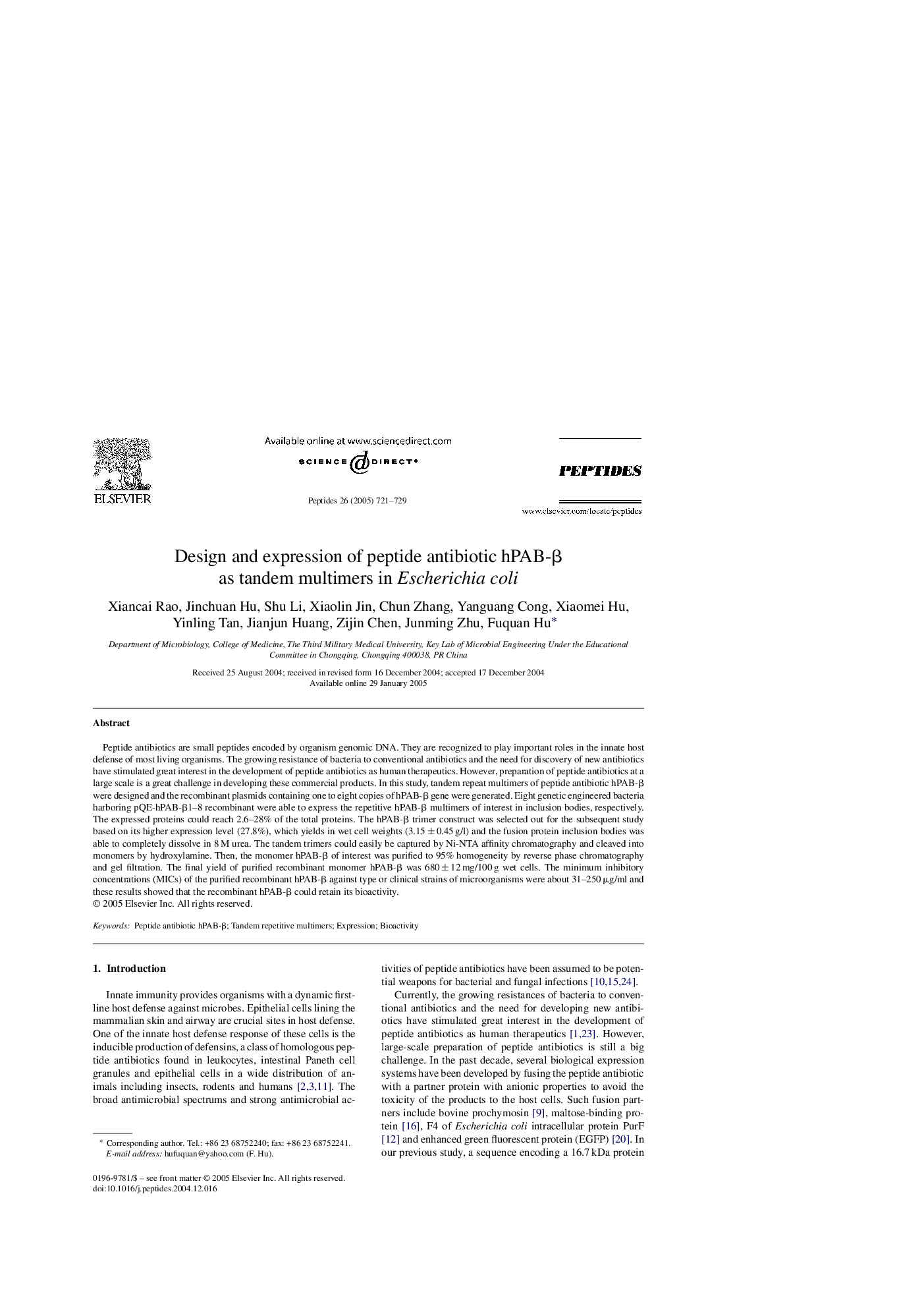| Article ID | Journal | Published Year | Pages | File Type |
|---|---|---|---|---|
| 10836026 | Peptides | 2005 | 9 Pages |
Abstract
Peptide antibiotics are small peptides encoded by organism genomic DNA. They are recognized to play important roles in the innate host defense of most living organisms. The growing resistance of bacteria to conventional antibiotics and the need for discovery of new antibiotics have stimulated great interest in the development of peptide antibiotics as human therapeutics. However, preparation of peptide antibiotics at a large scale is a great challenge in developing these commercial products. In this study, tandem repeat multimers of peptide antibiotic hPAB-β were designed and the recombinant plasmids containing one to eight copies of hPAB-β gene were generated. Eight genetic engineered bacteria harboring pQE-hPAB-β1-8 recombinant were able to express the repetitive hPAB-β multimers of interest in inclusion bodies, respectively. The expressed proteins could reach 2.6-28% of the total proteins. The hPAB-β trimer construct was selected out for the subsequent study based on its higher expression level (27.8%), which yields in wet cell weights (3.15 ± 0.45 g/l) and the fusion protein inclusion bodies was able to completely dissolve in 8 M urea. The tandem trimers could easily be captured by Ni-NTA affinity chromatography and cleaved into monomers by hydroxylamine. Then, the monomer hPAB-β of interest was purified to 95% homogeneity by reverse phase chromatography and gel filtration. The final yield of purified recombinant monomer hPAB-β was 680 ± 12 mg/100 g wet cells. The minimum inhibitory concentrations (MICs) of the purified recombinant hPAB-β against type or clinical strains of microorganisms were about 31-250 μg/ml and these results showed that the recombinant hPAB-β could retain its bioactivity.
Keywords
Related Topics
Life Sciences
Biochemistry, Genetics and Molecular Biology
Biochemistry
Authors
Xiancai Rao, Jinchuan Hu, Shu Li, Xiaolin Jin, Chun Zhang, Yanguang Cong, Xiaomei Hu, Yinling Tan, Jianjun Huang, Zijin Chen, Junming Zhu, Fuquan Hu,
